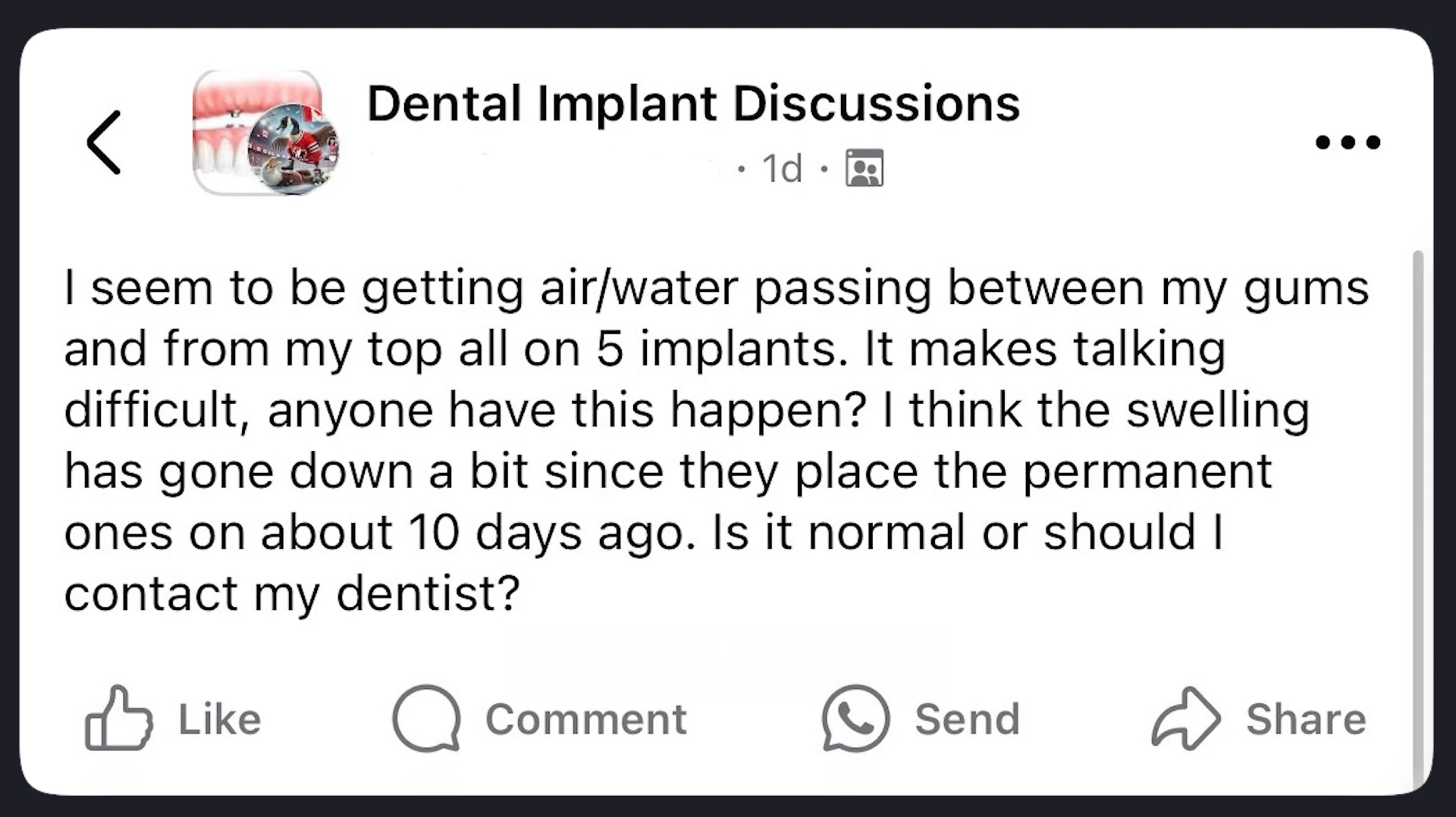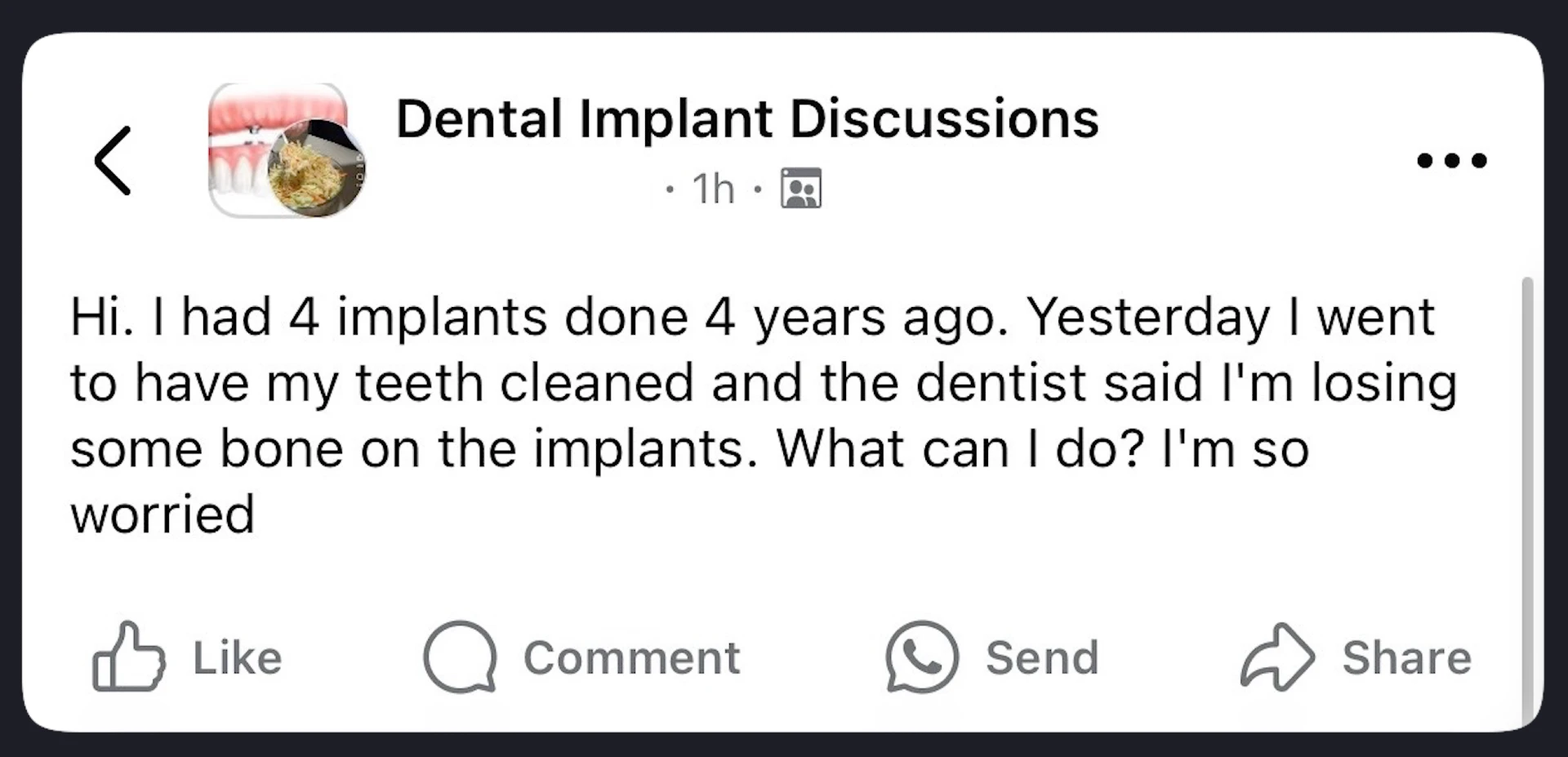Navigating Common Dental Implants Problems: Expert Answers To Real Patient Questions
Getting dental implants is a significant step toward regaining your smile and confidence. However, the journey involves a healing process that can sometimes bring questions or concerns. In the video above, Dr. Caleb Stott at Smile Now Dentures and Implants addresses some common dental implants problems that patients discuss in online forums, offering clarity and expert insight.
Understanding what to expect after your procedure can make all the difference. Let’s explore two frequent concerns – air and water passing under a new prosthesis and bone loss around implants – to help you navigate your own healing journey with peace of mind.
Common All On 4 Dental Implants Problems: Gaps and Airflow

One of the most common questions we see involves the sensation of air or water passing between the gums and a new set of implant-supported teeth. In an online forum, a patient who recently received their permanent All-On-5 implants described this issue, noting it made talking difficult. This is a surprisingly normal occurrence and is directly related to the healing process for dental implants.
After teeth are removed and implants are placed, the body initiates an inflammatory response, causing the gums to swell. A temporary, or “healing,” set of teeth is often placed during this time. Over the next few months, two crucial things happen:
- Osseointegration:
This is the process of osseointegration of dental implants, where your bone cells fuse directly with the medical-grade titanium implants, creating a strong and stable foundation. - Tissue Maturation:
The initial swelling subsides, and your gum tissue matures, shrinking slightly and becoming tougher to protect the underlying bone and implants for the long term.
As your gums heal and the swelling reduces, a small gap can form between the tissue and your prosthesis. On the upper arch, this can cause air or water to seep through, sometimes resulting in whistling, slurring, or even blowing bubbles while speaking. While uncomfortable, it’s a sign that your body is healing as expected.
This is why at Smile Now Offices, we are cautious about placing a final, permanent set of zirconia teeth immediately after surgery. Because tissue changes are guaranteed, placing final teeth too early can lead to these gaps. For the patient who received their permanent teeth just 10 days prior, the reduction in swelling is the likely cause. The solution could be a refitting of the prosthesis or, in some cases, a simple tightening of the screws may be all that’s needed to re-establish a proper seal.
Addressing Another One of the Potential Dental Implants Problems: Bone Loss

Another patient in the online forum expressed worry after their dentist mentioned they were losing bone around implants that were placed four years ago. Hearing this can certainly be alarming, but it’s important to understand the context of bone health and dental implants.
Your jawbone is living, dynamic tissue. It is constantly remodeling itself, with specialized cells removing old bone and others depositing new bone. This is a healthy, lifelong process. When a dental implant is placed, it integrates with this living organ. A very minor amount of bone loss over time (around 0.1 millimeters) is considered normal and acceptable in implantology. This tiny change is often unnoticeable and doesn’t affect the function of your implant.
Significant bone loss, however, is one of the more serious dental implants problems. This is typically caused by other factors, including:
- Inflammatory Response:
Substantial bone loss is often the result of inflammation. Your body may be trying to fight off bacteria or something it perceives as a foreign invader around the implant, and bone loss is a byproduct of this battle. - Unstable Gum Tissue:
The health of the tissue around an implant is critical. If the gums are not thick and stable enough, they cannot create a protective seal, leaving the implant vulnerable to bacteria and subsequent bone loss.
If you are told you have bone loss, it’s essential to determine the cause and create a plan to stop the process to ensure the implant’s longevity. Sometimes, a dentist’s comment is simply an observation of normal, healthy bone remodeling and not a cause for panic. However, if you are concerned, getting a second opinion is always a good option to better understand your situation.
Get Expert Guidance on Your Dental Implant Journey
The journey to a new smile is a process, and having reliable information is key. While issues like gaps from healing tissues or minor bone remodeling are often normal, other dental implants problems may require professional intervention. The team at Smile Now Dentures and Implants is dedicated to providing patients with clear, accurate information to support them on their path to better health and renewed confidence.
If you have questions or concerns about your implants, we are here to help. Contact us today to get the answers you need from a team you can trust.

